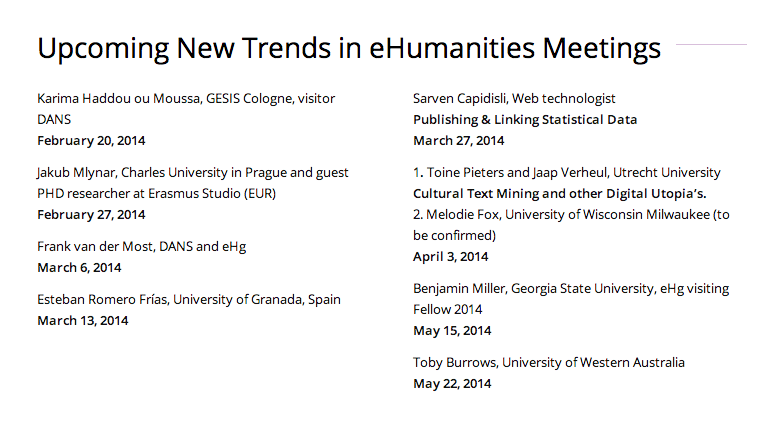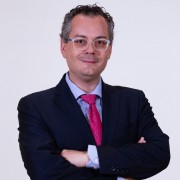
El equipo de investigación permanente del eHumanities Group está compuesto por las investigadoras Sally Wyatt (coordinadora del Grupo) y Andrea Scharnhorst (coordinadora del Computational Humanities programme). En 2010 tuve la oportunidad de visitar durante 3 meses el Virtual Knowledge Studio, centro predecesor de este.
ACTUALIZACIÓN (6/3/2014): incluyo el abstract de la presentación.
GrinUGR (http://grinugr.org/; @grinugr) is defined as a Co-Laboratory on Digital Cultures in Social Sciences and Humanities. GrinUGR was created after the experience that Esteban Romero-Frías had in 2010 visiting the Virtual Knowledge Studio in Amsterdam. GrinUGR has a hybrid identity: not being part of the formal structure of the University of Granada but being able of generating projects and getting people together.
The presentation has two parts. Firstly, Esteban will explain the experience of creating this group: problems, challenges, projects, etc. Among the main projects already developed is worth mentioning:
- I Conference on Digital Social Science and Humanities at the University of Granada
- THATCamp UGR 2013
- GrinWeek (2nd edition), a week about open digital cultures for learning in the 21th Century
- Learning Week
Secondly, he will present an agenda of undergoing research projects, focusing on two of them:
1.- “Atlas of Digital Humanities and Social Sciences in Spanish and Portuguese” (http://atlascshd.org): this is a project that aims to give visibility to the Spanish and Portuguese speaking community of digital scholars.
2.- “Exploring social impact and engagement of Digital Humanities Centers (DHC) through Social Media”: this is an study in progress that intends to analyse the missions of Digital Humanities Centers in relation to their presence in Social Media. Are DHCs really changing the way academia engage with the general public?

